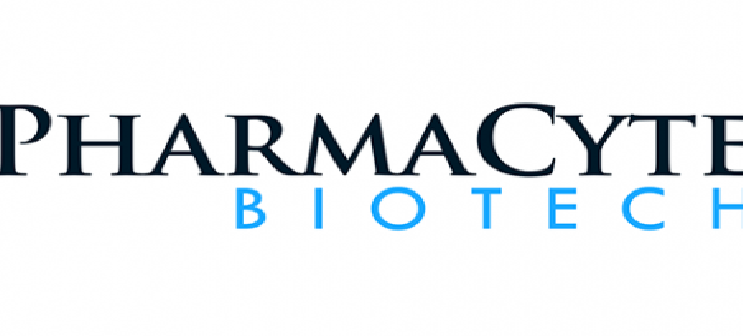The biotech sector has been and will continue to be one greatest beneficiaries of the growth in the cannabis industry. The sector is comprised of the most credible cannabis companies; some of which trade on the NASDAQ. There are also a number of biotech companies trading on the over-the-counter (OTC) exchange. These companies are in their developmental stage and are thus naturally speculative in nature. However, with big risk comes big reward. Investors must be selective and look extensively into each company prior to investing.
During 2015, at least 10 OTC biotech cannabis companies announced that they are developing a treatment that will change the world, however, most of these companies are just blowing smoke. Technical420’s goal is to help investors focus on companies executes on business initiatives and is focused on creating value for shareholders. One of the companies Technical420 is monitoring is PharmaCyte Biotech (PMCB).
What is PharmaCyte Biotech focused on?
PharmaCyte Biotech is a pharmaceutical company that is ready to break into the cannabis industry but has yet to do so. PMCB has the potential to become a major player for the following reasons: 1) Melligen cells prove safe in first preclinical test, 2) Created the International Diabetes Consortium to get its diabetes treatment into human clinical trials, 3) Made significant progress in their cancer program, and 4) Changed the company’s name to reflect its transition from a nutraceutical to a biotech company and improved the quality of its management team.
Melligen Cells Prove Safe in First Preclinical Test
In May, PharmaCyte Biotech announced that the Institute of Virology at the University of Veterinary Medicine Vienna completed the first round of safety testing of the Melligen cells in mice. The Institute is one of the partners in PMCB’s International Diabetes Consortium. The study found that Melligen cells are just as safe as the cells that were encapsulated with the Cell-in-a-Box technology coupled with the cancer drug ifosfamide. PMCB plans to conduct additional safety studies as well as efficacy and dose finding studies on the Melligen cells in the near future.
Melligen cells have shown promise as a potential treatment for insulin dependent diabetes through the genetic engineering of human, non-pancreatic beta cells that makes the Melligen cells capable of regulating blood sugar levels by producing insulin on demand. When Melligen cells were transplanted into diabetic mice, the blood glucose levels of the mice became normal. Melligen cells are thus able to reverse diabetic conditions in animals.
PMCB has exclusive worldwide rights to use the Melligen cells to treat diabetes. These rights were obtained from the University of Technology Sydney (UTS).
Created the International Diabetes Consortium
PMCB created the International Diabetes Consortium to get its diabetes treatment into human clinical trials. The International Diabetes Consortium is comprised of 16 members who are focused on PMCB’s diabetes treatment. The group wants to make the treatment available to insulin-dependent patients around the world. If PMCB is successful, it will be due to the work done by this team.
Earlier this month, the first of the Diabetes Consortium’s work in animals with the Melligen cells returned favorable data. The preclinical safety study showed that Melligen cells are as safe as the cells that were encapsulated with the Cell-in-a-Box technology and then used together with the cancer drug ifosfamide to treat patients with advanced pancreatic cancer in previously conducted clinical trials.
As such the cells used in the diabetes treatment are as safe as the cells PMCB uses in its pancreatic cancer treatment which is preparing for a Phase 2b or “mini” Phase 3 human clinical trial.
Made Significant Progress in the Cancer Program
The biggest catalyst for PMCB is the initiation of Phase 2b clinical trials which is expected to take place in the third quarter of 2015. The company’s pancreatic cancer treatment will be compared with the best available chemotherapy (Abraxane plus gemcitabine) for advanced pancreatic cancer. Although PMCB expected to start Phase 2b clinical trials in the first quarter of 2015, their partner Austrianova is awaiting the Good Manufacturing Practices (GMP) regulatory approval. PMCB obtained an exclusive worldwide license from Austrianova to use its Cell-in-a-Box technology.
In late December 2014, PMCB’s treatment for pancreatic cancer was granted Orphan Drug designation by the FDA. In March, the company reported positive results from its first preclinical study (4 groups of tumor bearing mice) that was conducted by Translational Drug Development (TD2). An expanded study (12 groups of mice) is currently being conducted by TD2. They expect to complete the study within the next 2 months. The target date for initiation of the Phase 1 clinical trial in the U.S. is the third quarter of 2015.
TD2 will conduct two additional clinical trials to determine the effectiveness of PMCB’s treatment in reducing pain and slowing the accumulation of malignant fluid in the abdomen. Dr. Daniel Von Hoff played a key role in the design of preclinical trials for abdominal cancers using PMCB’s technology. The trials were conducted by America’s leading Contract Research Organization which specializes in preclinical and early-mid phase clinical trials in oncology.
Changed the company’s name and improved the quality of its management team
Over the last year, PMCB changed its name and upgraded the quality of its management team particularly with respect to the clinical research and execution side. PMCB changed its name to reflect its transition from a nutraceutical company to a pure-play biotechnology company.
In April, Thomas Liquard joined PMCB’s Board of Directors and is the Chairman of the Audit Committee. Liquard formerly served as Senior Director of Pfizer’s established products portfolio and his experience adds a lot of value to the company. Liquard has more than a decade of experience in the pharmaceutical industry having held various commercialization, product development and leadership positions in big pharma and biotech companies. He holds an MBA from Columbia Business School and a Bachelor of Science degree from the University of Southern California.
Dr. Matthias Lohr and PMCB’s officers who head the Scientific Advisory Board also have impressive resumes in the scientific field. Dr. Gerald W. Crabtree Chief Operating Officer was the project manager for the development of the anticancer agent, Taxol. Dr. Löhr and Dr. Walter Günzburg, Chief Scientific Officer, and Dr. Brian Salmons played a key role in the development and investigation of the Cell-in-a-Box technology during clinical trials for the treatment of advanced pancreatic cancer.
Dr. Daniel Van Hoff leads PMCB on the oncology side. Dr. Hoff is the leading authority on pancreatic cancer and served as President of the American Association for Cancer Research. Dr. Hoff and his team at TD2 conducted early clinical investigations on many anti-cancer agents that have been approved by the FDA and are in use today. In recent months, TD2 has been conducting a series of preclinical studies using PMCB’s technology.
WANT TO KNOW MORE???
If you want more great information like this, or if want investing advice, register for a Pro Trader membership at https://technical420.com/user/register. You will not be charged during the first week and you can cancel anytime FOR FREE
Important Investor Disclosures:
Technical420 LLC is not a FINRA member firm. Technical420 LLC is responsible for the preparation and distribution of research created in the United States. Technical420 LLC is located at 40 SW 13th St. Suite 1002, Miami, FL 33130.
Technical 420 LLC, and any of its directors, officers, employees, affiliates, or subsidiaries does not accept any form of compensation from companies in return for writing reports on them. Also Technical 420 LLC, and any of its directors, officers, employees, affiliates, or subsidiaries do not hold any stock positions in companies covered by Technical420LLC.









 Get the Latest Cannabis News & Stock Picks.
Get the Latest Cannabis News & Stock Picks.
Comments